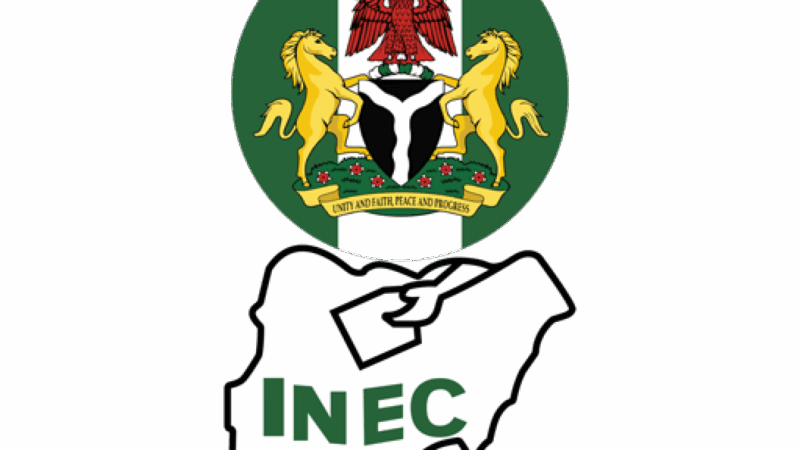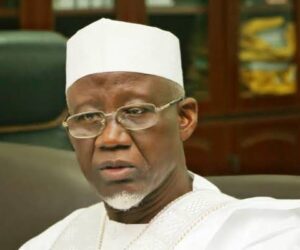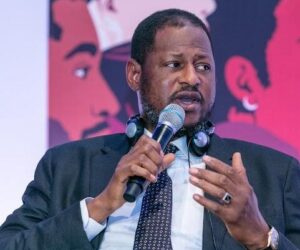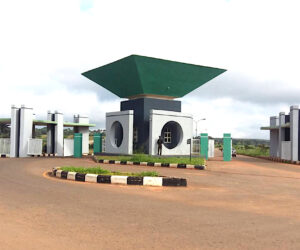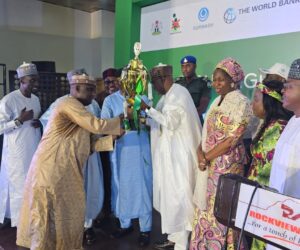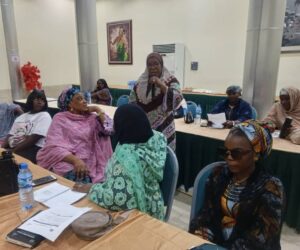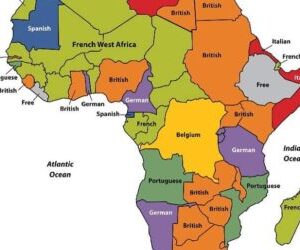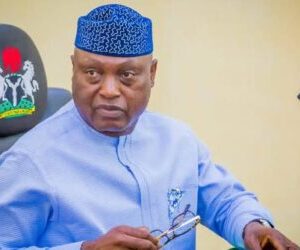In what appears to be a vote of confidence on the Independent National Electoral Commission (INEC) the European Union (EU) commended the commission for making “very significant progress” in implementing reforms arising from the 2023 general elections.
The commendation, which came as the commission renewed its call on the National Assembly to fast-track electoral amendments ahead of the 2027 general elections, is a good omen for electoral credibility and the evolution of Nigeria’s democracy.
Head of the EU Election Observation Follow-up Mission (EU-EOM) to Nigeria and a member of the European Parliament, Mr. Barry Andrews, gave the commendation during a meeting with the then INEC Chairman, Prof. Mahmood Yakubu, and senior officials of the commission in Abuja last week.
Andrews, who led the EU-EOM to observe the 2023 general elections, described the EU deployment for the elections as “one of the largest ever by the EU,” which, he noted, reflected Nigeria’s central role in global democracy.
“We are very happy to see that there has been very significant progress on our recommendations. We recognise the challenges of judicial, administrative, and constitutional reforms, but we are encouraged by the work already done,” he said.
The envoy added that the Follow-up Mission, which has been in Nigeria for three weeks, was keen to hear INEC’s assessment of the reforms carried out so far, particularly in the area of improving result transparency and lessons learnt from recent off-cycle governorship elections. Drawing from his experience as an Irish parliamentarian, Andrews also underscored the reciprocity of observation missions.
“We have welcomed Nigerian observers in Ireland, and their contributions were constructive. Election observation is part of a global democratic ecosystem. It strengthens democracy everywhere,” he observed.
On his part, Professor Yakubu said the commission had taken concrete steps on the recommendations requiring administrative action just as it is consulting with stakeholders on cross-cutting issues.
“For those requiring legislative backing, we await the conclusion of the ongoing legal review by the National Assembly. However, an early passage of electoral reforms is critical to our planning. Uncertainty over the legal framework unsettles our work as elections draw nearer,” he warned.
The immediate-past INEC boss also revealed that the commission had, last year, published its comprehensive report on the 2023 general elections as well as the Review Report containing 142 recommendations, noting that both the EU report and findings by other election observers were central to the commission’s review process.
Yakubu reaffirmed that international observers would remain key partners in Nigeria’s democratic process. “Very soon, we will send out invitations to the EU, the Commonwealth, the African Union, and ECOWAS to observe the 2027 general elections. Their recommendations have helped us to improve the quality of our elections and electoral activities,” he said.
It is instructive that the EU EOM had in 2019 made 30 recommendations out of which 11 were specifically addressed to INEC, noting that three of them were identified as priority recommendations while eight were categorised as general.
By comparison, EU EOM 2023 report made 23 recommendations out of which eight (34.8 per cent) require action by INEC of which only one recommendation was listed as priority.
The remaining 15 (65.2 per cent) recommendations, out of which five were categorised as priority, require action by other entities in the executive, legislature, judiciary, political parties and multiple stakeholders.
The commission has carefully considered all the eight recommendations specifically addressed to it in the report. It has taken action on aspects of the recommendations that only require administrative action to implement.
Similarly, the election management body is taking action on cross-cutting recommendations that require collective action between INEC and other bodies and stakeholders while waiting for the conclusion of the ongoing legal review by the National Assembly on the recommendations that require legislative intervention..
Yakubu noted that EU recommendations, along similar reports from other national and international election observers, were the subject of wide-ranging consultations with critical institutions and stakeholders during INEC review of the 2023 general election. He said the review report contains 142 recommendations for electoral reform, adding that INEC had published the main 2023 General Election report over a year ago.
“As you are aware, election is a process governed by law. Many of your recommendations require the review of our electoral laws. For this reason, the commission had interfaced with our National Assembly, including a retreat with the Joint Committee on Electoral Matters,” he said.
Yakubu assured the EU EOM that INEC would continue to engage with the mission and other observers saying their recommendations had helped to improve the quality of elections and electoral activities.
The then INEC chairman’s plea for an expedited legislative action on the amendments to the Electoral Act is critical to the commission’s planning for the 2027 general elections, which are fast-approaching.
Having acted on eight recommendations, specifically addressed to the commission by the EU Election Observation (EU EOM) report on 2023 general elections, it now behooves the legislature and the executive to pass the amendments and assent the bills into law, respectively.
While Blueprint commends INEC for its pro-active measures towards ensuring free, fair, transparent, and acceptable general elections in 2027, we urge the other stakeholders, especially the National Assembly, the presidency, the judiciary, and political parties, to complement the commission’s efforts by concluding their respective aspects of the electoral framework. Nigerians ask for no less.

